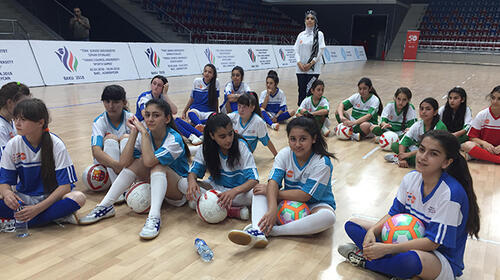- News
In Türkiye, refugee child marriages drive adolescent pregnancies underground
“These girls don’t go to the doctor regularly," said Huda, a UNFPA midwife. "Some probably give birth at home."
Read story- News
Girls in Azerbaijan battle disability stigma with sports
Life is often isolating for young people like Maryam. Girls living with disabilities often have few opportunities to engage with the broader world.
Read story- News
HIV prevention efforts must reach most vulnerable – adolescents, young women, LGBTQIA+ communities
HIV prevention efforts are leaving the most vulnerable groups behind.
Read story- News
Companies reach more than 1 million with family planning information in Philippines
“I used to believe that jumping after sex prevented pregnancy,” said Phoebe Tamondong, 25, in Laguna Province, in the Philippines. She is not alone – these and other family planning myths are widespread.
Read story- News
Family planning liberating for women in rural Ethiopia
For years, Ms. Belay's family struggled to put food on the table. Yet she kept having one child after another – in all, she had seven sons.
Read story- News
Midwives deployed to remote Afghanistan to lower maternal death rate
By midnight, Khurshid, 35, was in serious trouble. Five months pregnant and bleeding heavily, she had passed out at home.
Read story- News
Balloons, disinfectant, brandy used in attempts to prevent pregnancy
World Population Day celebrates the 50th anniversary the right to family planning. On this day, UNFPA is also calling attention to people who are unable to realize this right.
Read story- News
After ‘Volcano of Fire’ eruption, women and girls face heightened risks
UNFPA is working with the government, partners and community members to improve safety, care and health services for survivors.
Read story- News
One-stop care centre helps women amid South Sudan’s epidemic of violence
Violence against women is epidemic in South Sudan, but survivor services are often difficult to reach. “Women should get everything they need in one place,” said UNFPA Executive Director Dr. Natalia Kanem.
Read story







